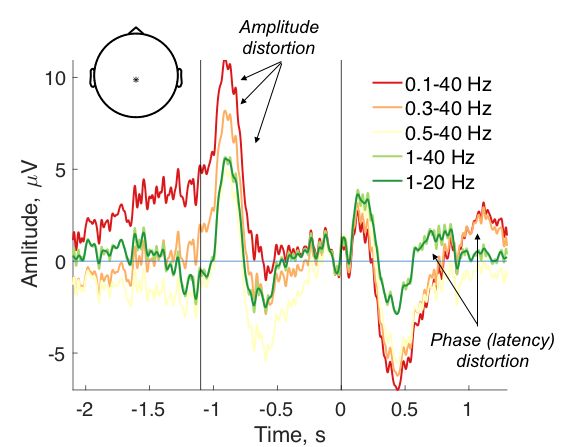Congrats to Dylan Rodriguez and Ibrahim Lubis for an excellent poster presentation at the 2019 UROP Spring Research Symposium!
They presented on the effects of different filtering choices on the interpretation of ERP data from a Semantic Priming experiment (the experiment was a follow-up to this paper). Their work builds on a very interesting set of papers from Tanner and others (see here, here, here, and here) on how standard band-pass filters may distort typical language-related ERPs like the N400.
One of the most interesting (and troubling!) things to come out of that work was that filtering not distorts ERP amplitudes, but also phase: Components can become delayed in time or even appear to shift polarity because of phase distortion. Effects like this are clearly evident in Dylan & Ibrahim’s work – shown here for a single-subject grand-average.

What this result reinforces for me is that “optimal” filtering is highly dependent on the noise structure of an individual data-set. How then to filter data without introducing circularity in the analysis? Here’s a few ways we’ve approached this… but I’d love to hear how others do it
- Use an independent dataset per subject (we collect a 3 min auditory tones protocol at the beginning of every session)
- Use on an independent contrast (e.g. include a “classic” N400 or P600 design in experimental fillers)
- Use grand-averaged data – not a contrast
The last two may not be fully non-circular (e.g. the artifact rejection/correction parameters are shared between the data used for determing filters and the contrasts of interest…) All in all, this needs more attention!